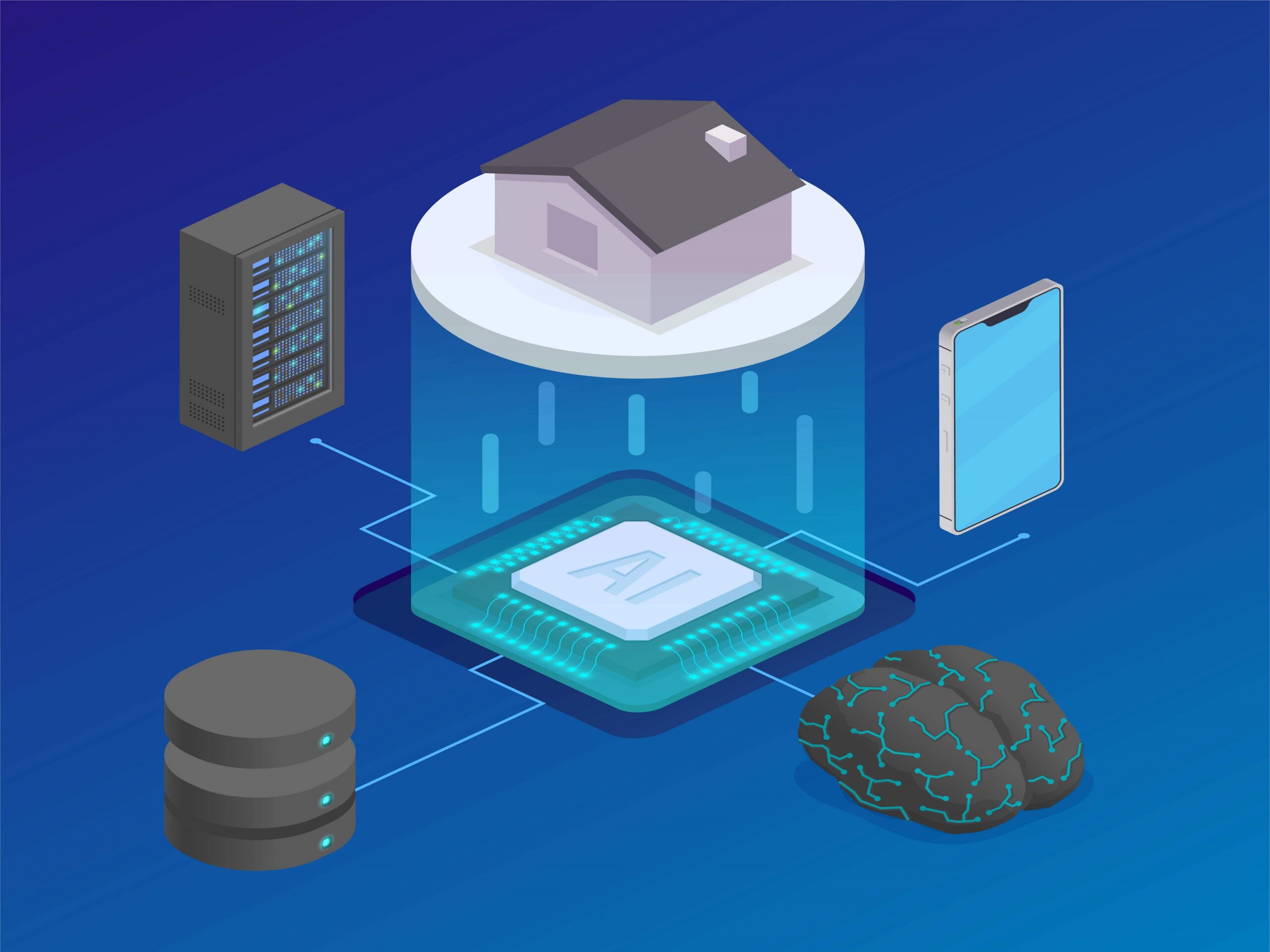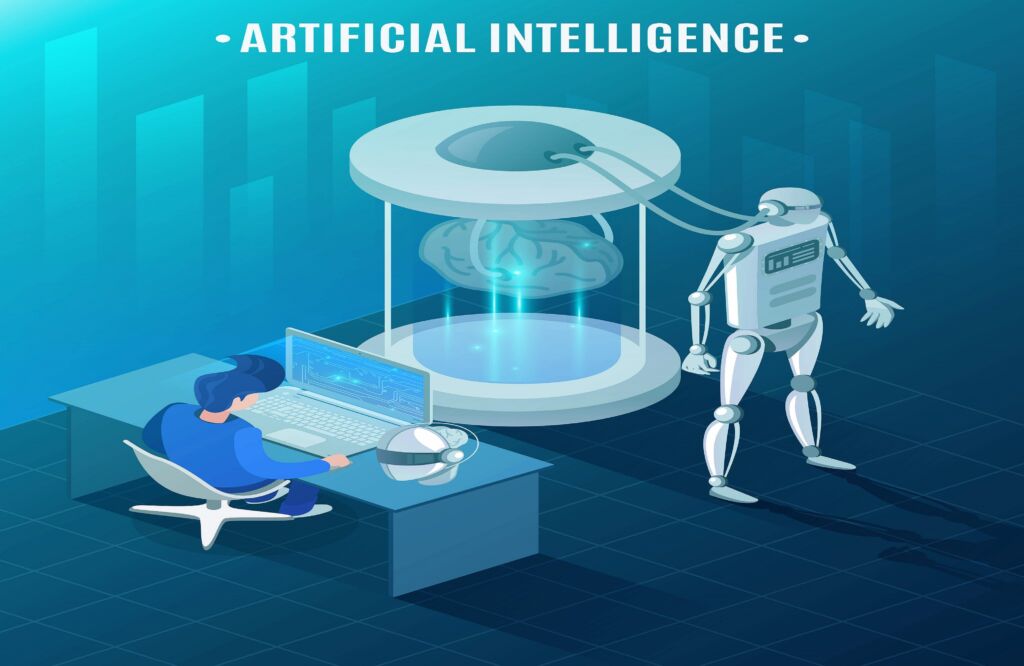

June 11, 2023
As technology continues to evolve, the development of Artificial Intelligence system has been gaining more recognition among professionals and non-professionals alike. AI is a type of computer science devoted to researching how machines can think, reason and make decisions independently; it has been linked to medical healthcare applications as well as marketing campaigns in order to improve businesses.
These advances have led to many collaborations with researchers and industry experts who are looking for ways to utilize AI for their own development. As such, many experts agree that the continuing research into AI has just begun scratching the surface of its possible implications on our society.
Therefore, there is no doubt that growing advancements in the field of AI will have impacts on industries at various levels – from boosting productivity to optimizing processes – along with positive environmental effects in terms of reducing waste and emissions.
Financial services are particularly suited to benefit from AI technologies as they frequently require quick decision-making on large datasets. By leveraging an AI system’s ability to detect patterns and draw insights, banks can better manage risk, create more targeted financial products, and improve customer service.
In the pursuit of faster response times and tailored recommendations, banks are increasingly shifting away from manual processes in favor of more advanced data-driven systems powered by AI technology.
Thanks to this shift, financial institutions now have access to exponentially more information on consumer behaviors from which to generate actionable insights. As a result, businesses can now offer customized Artificial Intelligence solutions adapted to the needs of each customer while maximizing the use of resources at their disposal.
AI is having an enormous impact on the healthcare and medicine industry. AI-based software that can easily be integrated into existing medical practice management systems is changing the way medical professionals interact with patients, how they diagnose and treat illnesses, and more.
AI is also enabling personalized treatments by combining cutting-edge healthcare research with patient-specific information that allows doctors to develop more tailored protocols and plans for each individual.
This custom software gives healthcare workers instantaneous feedback through data analysis and provides detailed records that otherwise may have taken weeks to collect manually. AI is revolutionizing the process of identifying potential targets for drug treatments as well, utilizing advanced algorithms to determine if new drugs are a valid treatment solution for various illnesses. The possibilities for AI within healthcare are vast and its implementation continues to expand rapidly.
The manufacturing and automotive industries are being revolutionized by AI. By using AI-enabled machines to automate production, companies can reduce costs, increase productivity and enhance product quality.
In fact, many leading brands in the automobile industry are now introducing connected cars that feature advanced driver assistance systems, such as lane centering and self-parking capabilities. This use of AI technology can help reduce accidents on the road through early recognition of potential hazards.
Additionally, automated semiconductor production lines offer improved monitoring capabilities which enable manufacturers to optimize their efficiency. As AI technologies become more advanced, companies in these industries are continuing to explore new ways to maximize their use for greater convenience and cost savings.

AI is revolutionizing the job market, creating unprecedented opportunities for those who are prepared to take them. Though AI-driven automation does reduce the need for certain types of labor, in turn, it creates a growing demand for specialized personnel to build, maintain and adjust this technology.
From software engineers, hardware engineers, IT professionals, and data scientists able to derive insights from large volumes of information, there is an increasing number of positions available which require significant technical skills and deep knowledge across multiple disciplines. This increased demand is beneficial not only because it gifts those with the proper qualifications access to plentiful job opportunities but also genuine potential for career growth.
With the advent of AI and machine learning, an increasing number of job opportunities have become available in advanced technology fields. These newly created positions are not only limited to research and development; they also include marketing, design, customer support, and data management.
From writing code to training algorithms, these jobs involve a wide range of skill sets and require professionals with expertise in specific areas. With this new growth in the industry, organizations around the world are recognizing AI’s potential and actively recruiting personnel to fill these roles. As a result, individuals who possess experience in working with artificial intelligence are being presented with unprecedented career opportunities.
With the implementation of powerful software powered by artificial intelligence, businesses have been able to create new job opportunities that go beyond coding and development. As AI takes over for mundane tasks, roles like quality assurance and customer service have been created, allowing employees to focus their attention on more complex problem-solving and greater creativity.
Not only are these roles offering a much-needed mental shift for those working them, but also provide invaluable insights into fields such as public relations, business operations, and data analysis.
Additionally, AI offers the perfect opportunity for skills development through training programs that teach valuable cyber safety measures or the latest smart technology trends. As the business world continues to evolve with the integration of AI, those who recognize these new job opportunities will be far ahead of the game.
As AI continues to redefine how we view our professional lives, it is becoming more and more clear that the future of work will take on a very different shape than what most of us are used to. From an automated recruitment system that sifts through hundreds of candidates quickly and accurately to AI-assisted customer service reps picking up the slack, companies who embrace the change stand to benefit greatly.
In the end, AI’s rise in prominence serves as both a challenge and an opportunity for employees and employers alike – with careful planning and implementation, many businesses have unlocked whole new vistas to explore.